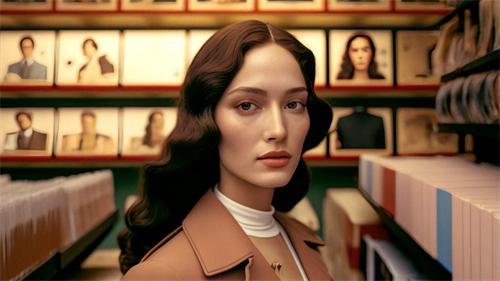AI-Generated Movies: Will Hollywood Embrace or Resist the Tech Takeover?

With the rapid development of generative artificial intelligence, the film and television industry is facing an unprecedented technological upheaval. On one hand, AI has dramatically improved creative efficiency; on the other, it has sparked strong protests and deep concerns among screenwriters and actors. Hollywood now finds itself at the center of a showdown between humans and machines.
Previously, thousands of Hollywood screenwriters staged pickets in front of film and television companies in New York and Los Angeles. In addition to demanding better pay, they firmly opposed the involvement of AI in scriptwriting. The Writers Guild of America (WGA) proposed a compromise: AI could be used in the writing process, but only if it did not affect the screenwriters' credits and profit shares.
The union’s stance is clear—AI-generated content should not be considered “literary material” or “source material,” as these terms are exclusively reserved for works created by human writers. Behind this definition lies a deep concern that production companies might use AI-generated drafts to cut human labor costs and reduce script fees. Many screenwriters worry that they will no longer be hired to create, but merely to “polish” AI drafts, losing both creative control and fair compensation.
What angers writers even more is the fact that the databases used to train AI may include scripts they previously wrote. This means their years of creative work are essentially being used to "feed" a machine that could eventually replace them. Some writers bluntly call AI a “plagiarism machine,” arguing that it not only disrupts their profession technologically but also creates unfairness in terms of copyright and profit distribution.
Does using scripts to train AI constitute copyright infringement? Do AI-generated works qualify for copyright protection? Who should be held accountable for the commercial value of an AI-written script? These legal and ethical questions remain unresolved.
Screenwriters aren’t the only ones under threat—actors are facing uncertainty too. Some media outlets have reported that AI tech companies are using data capture technology to collect actors’ likenesses en masse and create “digital actors.” These virtual characters can remain “forever young” and appear on screen without the need for real-life performances. This means that once an actor’s likeness is captured, their “digital double” could be used indefinitely, while the actor receives no compensation.
Even more concerning is the current lack of clarity surrounding the intellectual property rights of these digital humans, the authorization mechanisms for using their data, and whether actors are entitled to a fair share of profits. These crucial issues are still up in the air.
There’s no denying that AI offers obvious advantages in improving screenwriting efficiency. Traditional scriptwriting is often time-consuming and labor-intensive, while AI can quickly generate drafts based on keywords or commands, and even convert novels into storyboard scripts automatically. This has clear appeal for shortening production cycles and reducing costs.
However, AI’s limitations are also quite evident. When it comes to complex plot structures and emotional expression, AI still falls short. Its output is often a mechanical stacking of logic, lacking emotional depth and artistic warmth. For this reason, many industry professionals believe AI can serve as a tool, but cannot replace the core value that human screenwriters bring.
Truly outstanding scripts are distilled from life experiences, personal insights, and emotional understanding—skills that AI cannot replicate. Screenwriters are not just storytellers; they are artists who infuse complex emotions and human nuance into their work.
AI is capable of imitating human language patterns, but it doesn’t possess genuine emotional understanding or nuance. It has never experienced love, pain, or loneliness, which makes its creations hard to genuinely move people. It is precisely this uniquely human capacity for experience and imagination that ensures screenwriters still hold an irreplaceable role in the creative process.
AI’s rise has undoubtedly brought major changes to the entertainment industry. The future of Hollywood may not lie in rejecting AI outright, but in exploring ways for humans and AI to collaborate. Finding a balance between technology and creativity—protecting the rights of creators while leveraging AI’s advantages—will be one of the industry’s most urgent and defining challenges.
RECOMMEND FO YOU



